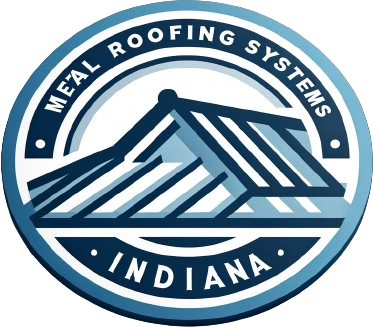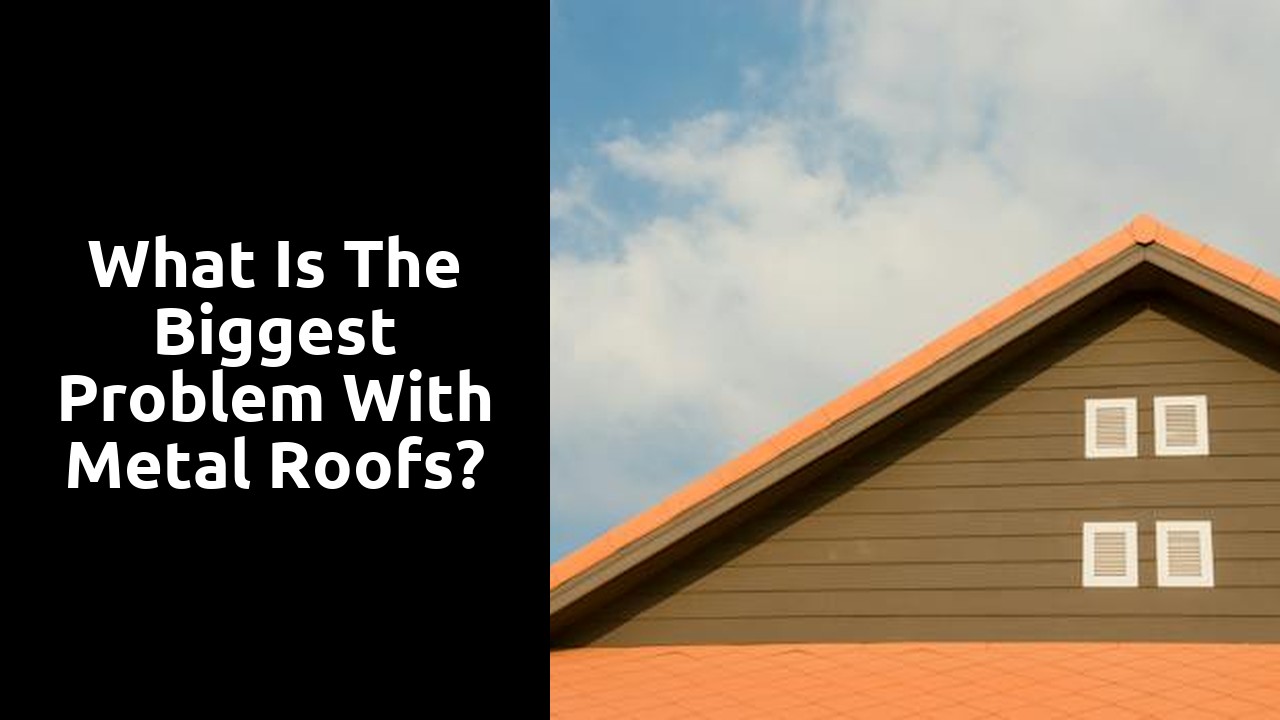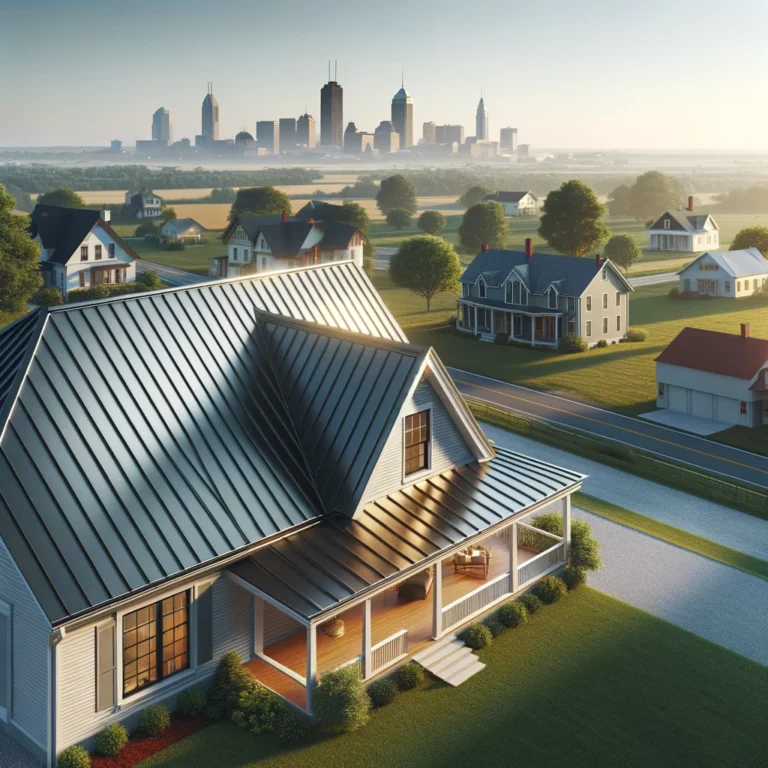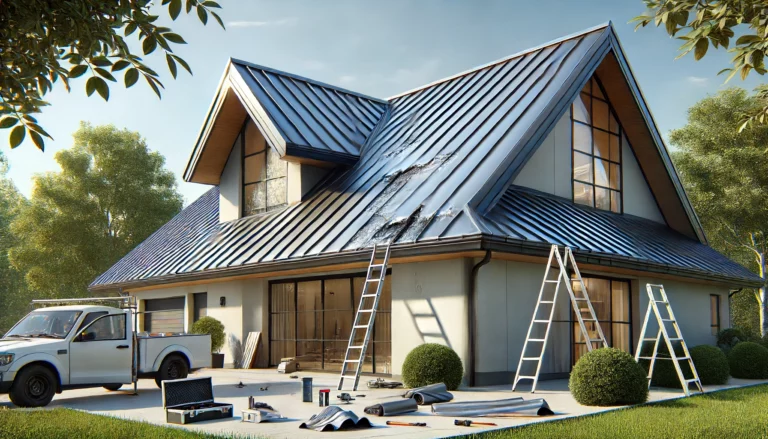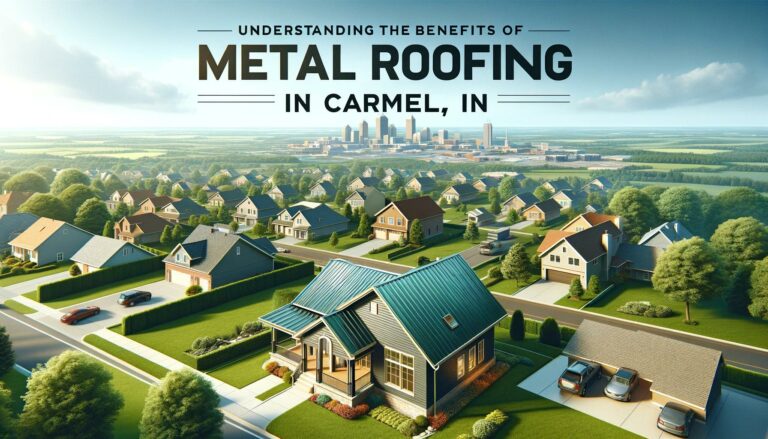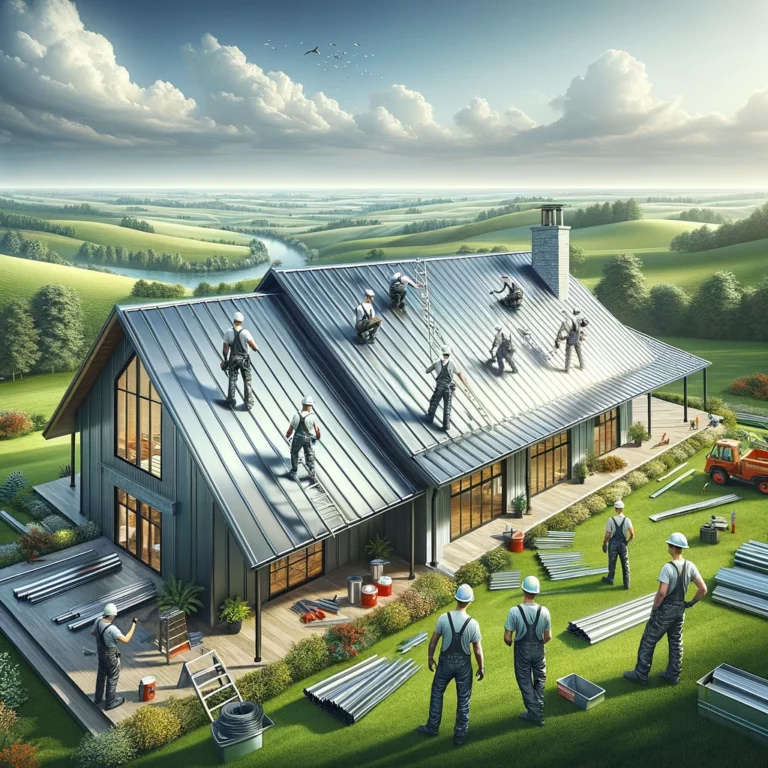What is the biggest problem with metal roofs?
Table Of Contents
The Common Challenges Homeowners Face with Metal Roofs
One of the most common challenges homeowners face with metal roofs is the issue of noise. When it comes to rainfall or hail, metal roofs can amplify the sound significantly compared to traditional roofing materials. This can be particularly bothersome for those with sensitive ears or who live in areas that experience frequent rainstorms. The noise factor can also become a concern during strong winds, as metal roofs tend to create rattling sounds that can be unsettling for some homeowners.
Another challenge involves the potential for denting and scratching. While metal roofs are known for their durability, they are not completely impervious to damage. Hailstorms, falling branches, and even debris carried by strong winds can all cause dents and scratches on the metal surface. This can not only affect the appearance of the roof but may also compromise its functionality over time. Homeowners must be diligent in maintaining the integrity of their metal roofs to minimize the risk of damage and ensure their longevity.
Click here for additional info.
Exploring the Downside of Metal Roofing
While metal roofs have become increasingly popular among homeowners, they do come with their fair share of downsides. One of the biggest challenges is the noise factor. Metal roofs tend to amplify sounds, such as raindrops or hail hitting the surface. This can create a noisy environment inside the house, especially during heavy storms. For individuals who are sensitive to loud sounds or have difficulty sleeping, this can be a significant drawback.
Another downside of metal roofing is its initial cost. Compared to traditional roofing materials like asphalt shingles, metal roofs are generally more expensive to install. The high upfront cost may deter some homeowners from considering metal roofing as an option. Additionally, the complexity of installation could require professional help, adding to the overall cost. While metal roofs may have long-term cost benefits due to their durability and energy efficiency, the initial investment can be a significant barrier.
Unveiling the Issues Associated with Metal Roof Installations
Installing a metal roof can come with its fair share of challenges and issues. One of the main concerns is the potential for water leakage. While metal roofs are generally durable and can withstand various weather conditions, improper installation or faulty flashing can lead to water seepage. This can cause significant damage to the structure of the roof and ultimately impact the interior of the house. Homeowners considering a metal roof installation should ensure that qualified professionals handle the job to minimize the risk of water leakage.
Another issue associated with metal roof installations is the potential for noise disturbances. Metal roofs can amplify sound, especially during heavy rain or hailstorms. This can be a significant concern for homeowners who value peace and quiet, as the noise can be disruptive. However, this issue can be mitigated by using additional insulation or soundproofing materials during the installation process. It is important for homeowners to be aware of this aspect and discuss it with their contractors to find the most suitable solutions for noise reduction.
The Hidden Dilemmas of Choosing a Metal Roof for Your Home
Metal roofs have become increasingly popular among homeowners due to their durability and longevity. However, despite their many advantages, there are some hidden dilemmas associated with choosing a metal roof for your home. One of the most notable dilemmas is the potential for noise. While metal roofs are known for their ability to withstand extreme weather conditions, they can be quite noisy during rainstorms, hailstorms, or even when debris falls on the roof. This can be a significant concern for homeowners who value a peaceful and quiet living environment.
Another dilemma that homeowners may face with metal roofs is the potential for heat retention. Metal roofs have the tendency to absorb and retain heat, particularly in sunny climates. This can result in higher energy costs, as the indoor temperature may increase, requiring more energy to cool the house. Homeowners in warmer regions need to carefully consider this aspect before opting for a metal roof. Additionally, the heat retention can also affect the comfort levels inside the home, making it important for homeowners to take proper insulation measures to minimize heat transfer.
Understanding the Limitations of Metal Roofing Systems
Metal roofing systems have become increasingly popular in residential properties due to their durability and longevity. However, it is essential for homeowners to understand the limitations of these roofing systems before making a decision. One of the primary concerns with metal roofs is the potential for noise. During heavy rain or hailstorms, the sound of precipitation hitting the metal surface can be quite loud, causing some homeowners to find it bothersome. Additionally, without proper insulation, the noise level inside the house may be amplified, further exacerbating the problem. Although some companies offer noise-reducing solutions, it is crucial for homeowners to consider this factor before opting for a metal roof.
Another limitation of metal roofing systems is their susceptibility to denting. While metal roofs are generally robust and can withstand severe weather conditions, they are not entirely impervious to impact damage. Hailstorms or falling branches can cause dents on the metal surface, compromising its overall aesthetic appeal. Additionally, walking on a metal roof incorrectly or with excessive force can also lead to dents or deformations. Homeowners considering a metal roof should take into account the potential for denting and consider the level of impact their area is prone to. Furthermore, regular maintenance and inspection will be necessary to address any dents promptly and prevent further damage.
Delving into the Drawbacks of Metal Roofs in Residential Properties
Metal roofs have gained popularity in residential properties due to their durability and longevity. However, there are certain drawbacks to consider before making the decision to install a metal roof. One of the main concerns is the noise factor. Unlike traditional shingle roofs, metal roofs can be quite loud during rain or hailstorms, causing disturbance and discomfort for homeowners. The sound of raindrops hitting the metal surface can be amplified, creating a constant noise that may take some time to get used to. Additionally, the expansion and contraction of metal during temperature changes can also result in creaking or popping sounds, adding to the overall noise level in the property. This can be a significant drawback for those seeking peace and quiet within their homes.
Another drawback of metal roofs is their susceptibility to denting. While metal roofs are highly durable, certain types of metal, such as aluminum, can be prone to denting from impact. This can occur from falling branches, hail, or even walking on the roof. The appearance of dents on the metal surface not only affects the aesthetics of the property but may also compromise the overall integrity of the roof. Furthermore, repairing dents on a metal roof can be challenging and costly, as the damaged section may need to be replaced entirely. Homeowners considering a metal roof should carefully assess the potential for dents and weigh this against the benefits of durability and longevity.
FAQS
What are some common challenges homeowners face with metal roofs?
Some common challenges homeowners face with metal roofs include noise during heavy rain or hail, potential for denting during severe storms, and the need for proper insulation to prevent heat transfer.
What are the downsides of metal roofing?
The downsides of metal roofing include higher upfront costs compared to traditional roofing materials, the potential for expansion and contraction with temperature changes leading to leaks, and the need for regular maintenance to prevent corrosion.
What are the issues associated with metal roof installations?
Issues associated with metal roof installations may include improper installation that can lead to leaks, difficulty in finding compatible roofing materials for repairs or replacements, and the need for specialized knowledge and tools during installation.
Are there any hidden dilemmas of choosing a metal roof for your home?
Some hidden dilemmas of choosing a metal roof for your home include the potential for increased energy costs if proper insulation is not installed, the possibility of noise disruption during rain or hailstorms, and the limited availability of color and design options compared to other roofing materials.
What limitations should I be aware of when considering a metal roofing system?
When considering a metal roofing system, it is important to be aware of its limitations, such as the potential for denting during severe weather, the need for proper insulation to address thermal conductivity issues, and the requirement for periodic inspections and maintenance to prevent corrosion and ensure longevity.
What are the drawbacks of metal roofs in residential properties?
Drawbacks of metal roofs in residential properties include the potential for noise disruption during rain or hailstorms, higher upfront costs compared to other roofing materials, and the limited availability of colors and styles, which may not suit everyone’s aesthetic preferences.
